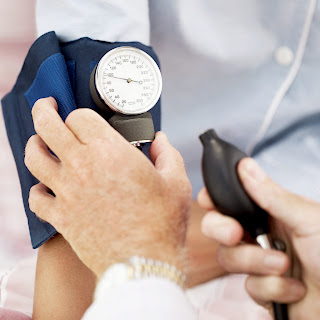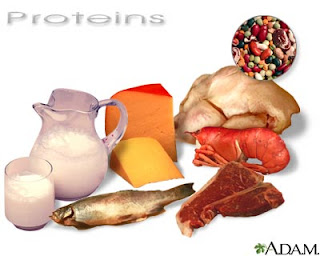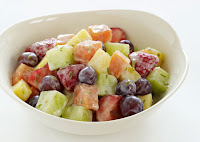Basics
Everyone knows foods like doughnuts, soda, french fries, are not healthy things to intake, but what really should you avoid? You shouldn't look to avoid foods as much as avoid the things in the foods. You should look deeper into the food labels, and find specific ingredients that you should avoid or not. Not only should you look at the ingredients, but as well as the processing and preparation.
Rewards
By eating healthier, and cutting some foods out of your diets you can reduce your risk of developing many chronic health problems, including heart disease, high blood pressure, and even some cancers.
Consequences
Many ingredients are linked to serious health problems, such as heart disease, are hard to avoid. Salt, saturated and trans fats, refined sugars, and processed foods (because they can easily contain all of the previous items) are among the worst offenders.
11 Worst Foods You Should Avoid
1) Doughnuts
- full of free radicals and trans fat (store-bought doughnuts contain 35-40 per cent trans fat)
- high in sugar, nutrient-free and calorie-dense (an average doughnut contains about 200-300 calories, mostly from sugar, and few other nutrients)
- full of white flour (in most varieties)
2) Soda

- high in sugar (one can of soda has about 10 teaspoons of sugar - 150 calories)
- high in caffeine (30-55 mg of caffeine per one can of soda)
- loaded with artificial food colors and sulphites
- filled with harmful artificial sweeteners and sulphites
- no nutritional value
- studies have linked soda to bone weakening, obesity, tooth decay and heart disease
- there is a thought that consumption of diet soda stimulates people to crave sugary foods, supporting a recent study that found that people who were more likely to drink diet soda were obese
- diet soda should never replace water or milk as a source of rehydration.
3) French Fries
- high in trans fat (potatoes cooked at high temperatures in vegetable oils)
- high in free radicals harmful to the body
- high in acrylamide (up to 82 mcg per serving), a potent toxic chemical formed as a result of unknown chemical reactions during high-temperature starchy foodsfrying or baking of starchy foods
- consuming foods that are fried in vegetable oils contributes to aging, clotting, inflammation, and weight gain
- foods that are fried in vegetable oils like canola, soybean, safflower, corn, and other seed and nut oils are particularly problematic
- polyunsaturated fats easily become rancid when exposed to oxygen and produce large amounts of damaging free radicals in the body
4) Chips
- high in sodium and trans fat (present in most commercial chips)
- high carcinogenic acrylamide (up to 25 mcg per serving).
5) Hot Dogs
- high in calories, fat, and sodium
- processed meats such as sausage, jerky, bacon, hot dogs, use nitrates to preserve color and maintain microbial safety
- nitrate can convert to nitrite, which can form nitrosamines, a powerful toxic chemical, in your body.
6) Fried non-fish seafood
- fried shrimp, clams, oysters, lobsters are high in trans fat and carcinogenic acrylamide
- loaded with toxic mercury
- can be contaminated with parasites and resistant viruses
7) Margarine

- trans fats are man-made fats that occur in foods when manufacturers use hydrogenation, a process in which hydrogen is added to vegetable oil to turn it into a more solid fat.
- hydrogenation changes the liquid vegetable oils to a solid
- hydrogenation process requires the use of such toxic catalyst-metals such as nickel, palladium, platinum or cobalt
- while it is true that margarine contains no cholesterol, the process of hydrogenation changes not only the physical form of the oils, but alters the way they are metabolized by the body
- most of the beneficial oils have been changed to a trans fatty acids.
- related with increases LDL cholesterol level
- increases Lp(a) lipoprotein, a type of LDL cholesterol found in varying levels in the blood
- raise triglyceride levels
- increased risk of coronary heart disease
8) Sugar and artificial sweeteners
- Refined sugar and mixtures containing refined sugar, including sucrose, dextrose, corn syrup, brown sugar, turbinado. Avoid artificial sweeteners.
9) Salt
- Salt creates untold physical problems and suffering. Yes, the body needs salt (sodium), but it must be in an organic form in order to be useful to the body. Table salt, sodium chloride, is an inorganic sodium compound that combines with chloride. It is extremely toxic to the body and causes the body to retain fluid. High intake of this substance thickens and stiffens arteries and increases the risks of strokes, and cardiac failure. It accelerates the rate of renal functional deterioration. Sodium chloride draws calcium from your bones, which is excreted in your urine. This leads to early and painful osteoporosis, or the thinning and fracturing of your bones.
10) Crackers, Toaster pastries, sugared cereals
- All these foods contain trans fats.
11) Foods High in Saturated Fat
- Saturated Animal Fats That means fatty meats, especially beef and pork, or the skin on poultry. It also includes full-fat dairy products such as cheese, milk and cream. Fatty meat and dairy products do have some contributions to make to a diet, but none that can't be found elsewhere.
http://healthhabits.files.wordpress.com/2009/08/coca-cola-coke.jpg
http://www.healthassist.net/conditions/food-avoid.shtml
http://www.everydayhealth.com/diet-nutrition/meal-planning/shopping/foods-to-avoid.aspx
https://blogger.googleusercontent.com/img/b/R29vZ2xl/AVvXsEjaB15SIpx4vLJRiOoV6jZaky6KEwcHM43HiW0QdtwPvCXvjEVucHYXOI-avnfnVBy42mP-p6-nxjvhqsviaq9Q62jdhpxP6glhS-TPiaqzfFCYv_TbVrD0NlHKRiWzfq8ELVDdg4rE3rGE/s400/Margarine.jpg
http://www.foodphotosite.com/images/fast_food/burger___fries/french-fries-01.jpg














